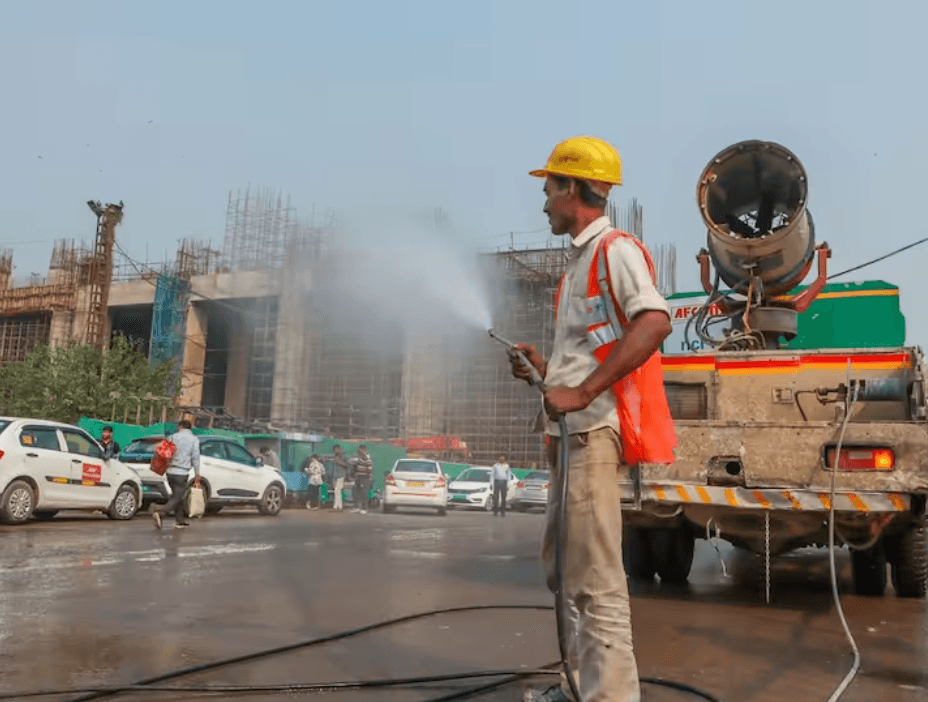The air quality in Delhi continues to remain hazardous as the capital city recorded an Air Quality Index (AQI) of 398 on Saturday morning. This AQI level is dangerously close to the ‘severe’ category, as per the Central Pollution Control Board’s classification.

The poor air quality is largely attributed to rampant stubble burning in neighboring states. Satellite imagery revealed widespread farm fires in Punjab, Haryana, and Uttar Pradesh. Smoke from these fires is blowing towards Delhi, adding to the city’s own vehicular and industrial emissions.
According to the data of the Central Pollution Control Board (CPCB), Bawana in Delhi recorded and AQI of 390, while at IGI airport it was 340, at ITO the AQI was 312, and in Jahangirpuri, it stood at 373 as of 8 am on Saturday.
Visuals from India Gate as air quality continues to remain in 'very poor' category in Delhi-NCR.#DelhiAirPollution pic.twitter.com/fVG2tDR976
— Press Trust of India (@PTI_News) November 18, 2023
Satellite imagery has revealed widespread instances of stubble burning in agricultural fields across these states. Smoke emanating from these fires is being carried by winds toward Delhi, adding tremendously to the capital’s own emissions from vehicles, industries, construction dust, etc.
While Delhi’s air quality has slightly improved from ‘severe’ to ‘very poor’ levels, it still poses serious health risks. Other parts of the National Capital Region like Ghaziabad, Noida, Gurugram, and Faridabad also recorded ‘very poor’ to ‘poor’ air quality. In contrast, Mumbai experienced welcome relief with ‘moderate’ AQI levels.
In contrast, the financial capital Mumbai has experienced some welcome relief with ‘moderate’ AQI levels. With winter approaching, experts fear Delhi’s pollution woes will worsen if stubble burning continues unabated in neighboring states.
To deal with this annual crisis, the central and state governments need coordinated policy action to incentivize farmers against stubble burning. Providing subsidized machinery for in-situ management of crop residue could help. Tough enforcement of bans on farm fires and public awareness campaigns are also crucial.
Delhi residents hope the authorities will act decisively before the situation deteriorates further in the coming weeks. Long-term solutions like switching to renewable energy, controlling dust pollution, and increasing green cover are also required to tackle this issue.
